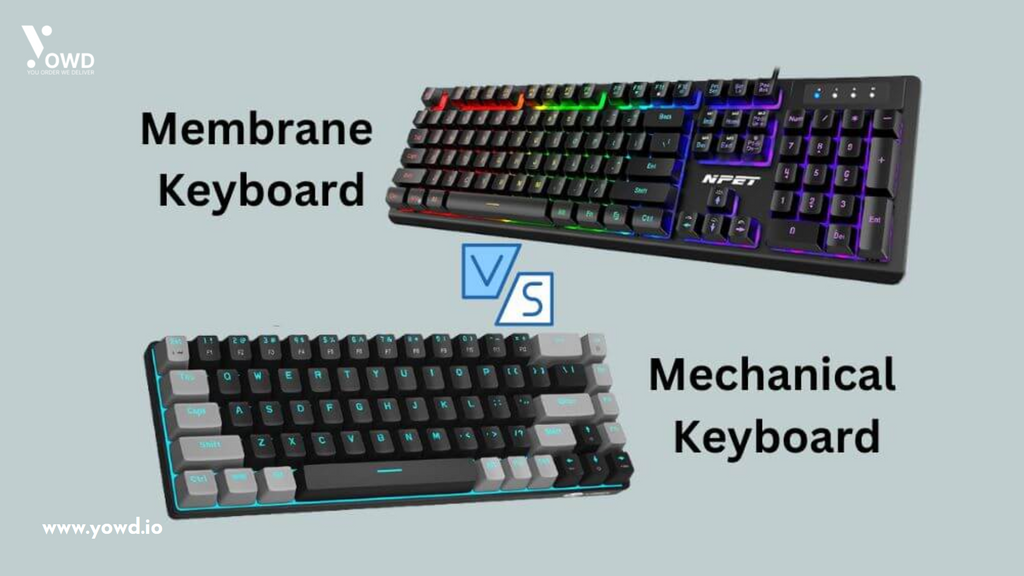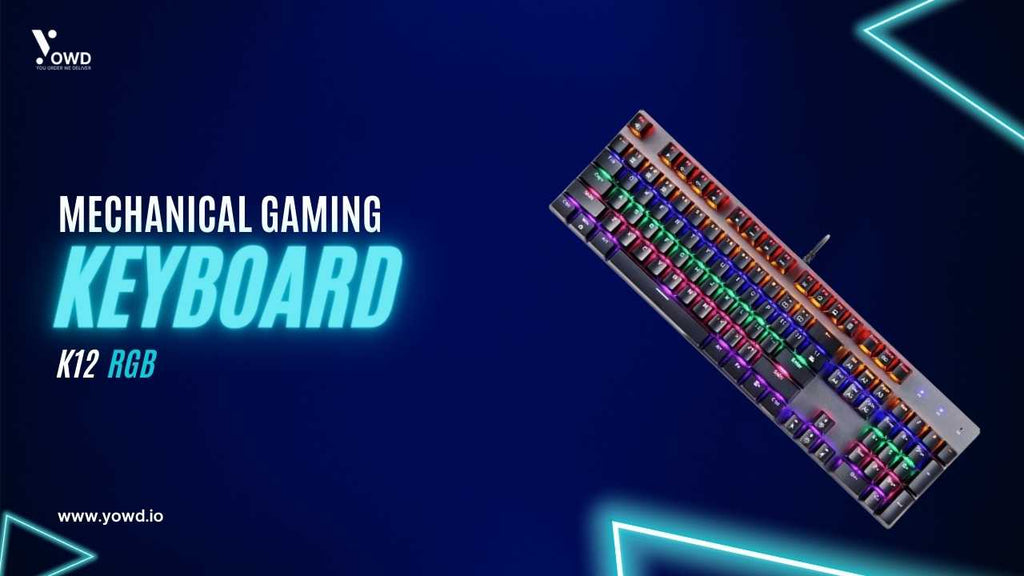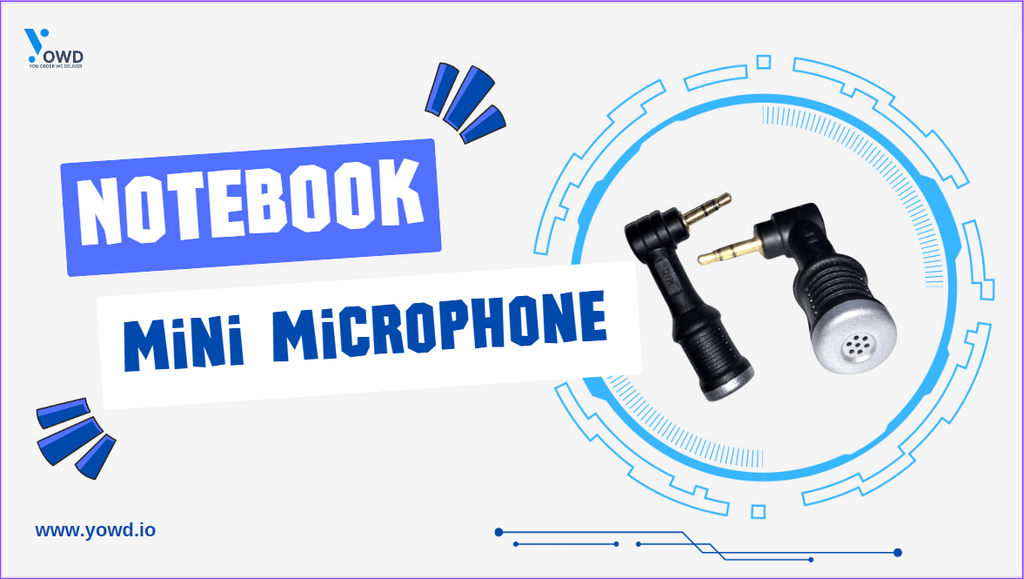
Membrane vs Mechanical Keyboards: Whats the difference?

Membrane and mechanical keyboards are different kinds of keyboards. A good keyboard is the need of the day in today's world, and in the market, there are different types of keyboards. Work like composing emails, playing games, and working on crucial documents is made more accessible.
The keyboard we use significantly impacts our typing experience and overall productivity. Membrane keyboard vs mechanical keyboards have their own set of characteristics. Regarding the selection between membrane keyboard vs mechanical keyboard, the comparison makes sense. Each category of keyboard comes with its pros and cons.
So, let's figure out the differences between a membrane keyboard vs mechanical keyboard. It's evident that mechanical keyboard vs membrane keyboard have little in common other than that they serve the same purpose. Our YOWD team has deeply observed both keyboards and identified some significant differences between membrane keyboard vs mechanical keyboard.
What is Mechanical keyboard?

A mechanical keyboard generally has spring-activated switches below each keycap. Only after the keyboard has recorded the press is the button triggered, and the bounce, bump, or clicking sound alerts one to the activation. The switches on a mechanical keyboard are easy to replace and change. You can also customize the keyboard to your liking.
A mechanical keyboard is also known as a gaming keyboard and is best for typing enthusiasts, too. Mechanical keyboards are popular due to their tactile nature and pleasant typing experience, with each keypress registering more clearly.
Key Features of the Mechanical Keyboard
When we look into the difference between a membrane keyboard vs mechanical keyboard, first of all, we seek out their distinguishing features. The significant difference between a mechanical vs membrane keyboard is mechanical switches.
Mechanical switches
Mechanical keyboard switches are of great variety and are also called switches made of steel. There are three major types of switches.
Linear
A red switch is a type of switch known as a linear switch. It reacts smoothly and provides no tactile feedback.
Clicky
Blue switches, often called clicky switches, emit a distinct "tick" or click sound and elicit a nice reaction.
Tactile
Brown switches, often called tactile switches, deliver significant feedback while remaining silent.
Pros and cons of a mechanical keyboard
For selecting between a membrane keyboard vs mechanical keyboard, complete information with the pros and cons of the mechanical keyboard is necessary.
Here are some pros and cons of using a mechanical keyboard, which are explained below:
Pros of a mechanical keyboard
The basic benefits of a mechanical keyboard are discussed below:
Durability
The mechanical keyboard will have more durability, even if it has seen better days. Mechanical keyboards can take between 30 and 100 million keystrokes per minute, depending on the brand, type, and quality of the switches employed.
Customization
Users can swap out keycaps or program keys to personalize their keyboards. You can also personalize rgb lighting effects and choose keycap materials, profiles, and colors.
Stability
Due to the robust design of mechanical keyboards, they are built for stability. Even if you are an aggressive typist, a mechanical keyboard will stabilize you by not sliding around.
Long Life Span
Up to 70 to 100 million keystrokes on the mechanical keyboard are possible and ensure a long life span. Due to their mechanical switches, mechanical keyboards are less prone to eating up and flattening out.
Anti-Ghosting
It prevents a problem when two or more keys accidentally do not register other keys. This means you can press all the keys simultaneously without registering any extra keys.
Feedback/Typing Experience
When your key is pressed, you can feel them going down and returning, giving lovely tactile feedback.
Cons of the mechanical keyboard
The significant drawbacks of using mechanical are mentioned below in detail:
Expensive
Due to additional features, the best typing experience, and customization options, they are expensive. If you have enough money to spend, this is a good choice, but it's a problem for people with tight budgets.
Noise
Mechanical keyboards are loud due to their robust construction of mechanical switches and keycaps. But this problem can be solved by modding your keyboard according to your preferences.
What is Membrane keyboard?

A membrane keyboard consists of a membrane layer that sits on top of a circuit board. The keys of the membrane keyboard are not separate moving parts but act as a pressure pad.
If you apply pressure by passing through a specific area, it will be registered as a keystroke. It features a rubber layer covering the circuit and buttons or keys visible on the keyboard above that.
Pressing a button forces the rubber layer beneath it, which is also connected to the circuit. When the rubber layer presses against the circuit, the circuit sends data to the CPU. The output is then shown on the screen by the CPU.
Key features of the membrane keyboard
Key distinguishing features of the membrane keyboard are three layers of flexible material and a bittersweet rubbery feel.
Three Layers of Flexible Material
A membrane keyboard's bed is referred to as a conductive trace. There are three very thin and flexible layers on the bed. The topmost layer is the membrane layer, with which your fingertips come into contact.
A Bittersweet Rubbery sensation
Because of the plastic keycaps and the rubber membrane underneath, membrane keyboards have a rubbery sensation that borders on mushy. This feature is bittersweet because it is one of the features that attracts some people to membrane keyboards while being extremely bothersome to others.
Pros and cons of membrane keyboard
For more information about membrane keyboard vs mechanical keyboard, now we will look into the pros and cons of membrane keyboards.
The pros and cons of a mechanical keyboard are given below in the table:
Pros of the membrane keyboard
The pros of the membrane keyboard are discussed below:
Cheaper
Membrane keyboards are affordable due to rubber membranes and plastic materials. It is also a good option for children who may accidentally break the keyboard or damage it.
Quieter typing
Membrane keyboards have minimal noise and are best for office environments. The materials used to make membrane keyboard components are largely rubber and plastic, which are extremely noise-dampening. .
Dust and water resistance
Membrane keyboards are frequently built to be dust and water-resistant. This feature qualifies them for use in situations prone to spills and debris.
Compact, lightweight design
Membrane keyboards are lighter and smaller, making them easier to transport. Weighing less than 1 kg, the weight of a keyboard might vary depending on its brand, kind, and age.
Cons of membrane keyboard
Although they are great, they have some disadvantages, so taking notice is considerable.
Shorter lifespan
Membrane keyboards have a shorter lifespan, lasting only roughly 5 million keystrokes, according to HP.
Lack of tactile feedback
Because membrane keyboards don't provide much physical feedback, it can be difficult for you to recognize whether or not you've pushed a key.
Harder to clean
It is difficult to remove dust because keycaps are not normally designed to be removed. It is impossible to take out any small fallen pieces from them.
Less durability
The keys on these keyboards also tend to wear down after 1-3 years, or even sooner in certain cases. Furthermore, the membrane layer of the keyboard could be more sturdy and can easily shatter if handled roughly
Comparison of Membrane keyboard vs Mechanical keyboard
So here are some major differences between membrane keyboard vs mechanical keyboard which are discussed in the table:
Mechanical |
Membrane |
|
A mechanical keyboard features mechanical switches for each key. |
In membrane keyboards, membrane switches are mostly used to register a keystroke. |
|
Mechanical keyboard switches provide a more tactile and responsive experience when typing. |
In a membrane, keyboard keys often feel mushy and lack the satisfying click. |
|
Mechanical keyboards are more durable |
Membrane keyboards are not as durable due to their material. |
|
Better key rollover because each key has its own individual mechanical switch. |
They use a rubber dome membrane to register key presses, which may cause difficulty. |
|
Mechanical keyboards are better for gaming |
Membrane keyboard are not a good option for gaming |
|
Mechanical keyboard sounds produce noise during typing. |
Membrane keyboards will give you quieter typing. |
|
Mechanical keyboards are expensive to buy. |
Anyone with a tight budget can go for a membrane keyboard. |
|
Mechanical keyboards are sturdy and heavy. |
Membrane keyboards are compact and lightweight. |
Conclusion
The selection and decision between a membrane keyboard vs mechanical keyboard is totally dependent upon personal preferences and requirements. Mechanical keyboards are popular among gamers and typing individuals, as mechanical keyboards generally offer tactile and personalized typing with improved durability. However, mechanical keyboards are more expensive and produce more noise.
Membrane keyboards are less expensive, quieter, and good for office work. They are lightweight and made for dust and water resistance. However, they lack the tactile feedback and durability of mechanical keyboards. The choice is yours between a membrane keyboard vs mechanical keyboard by looking for performance, customization, and a reduced noise typing experience.






